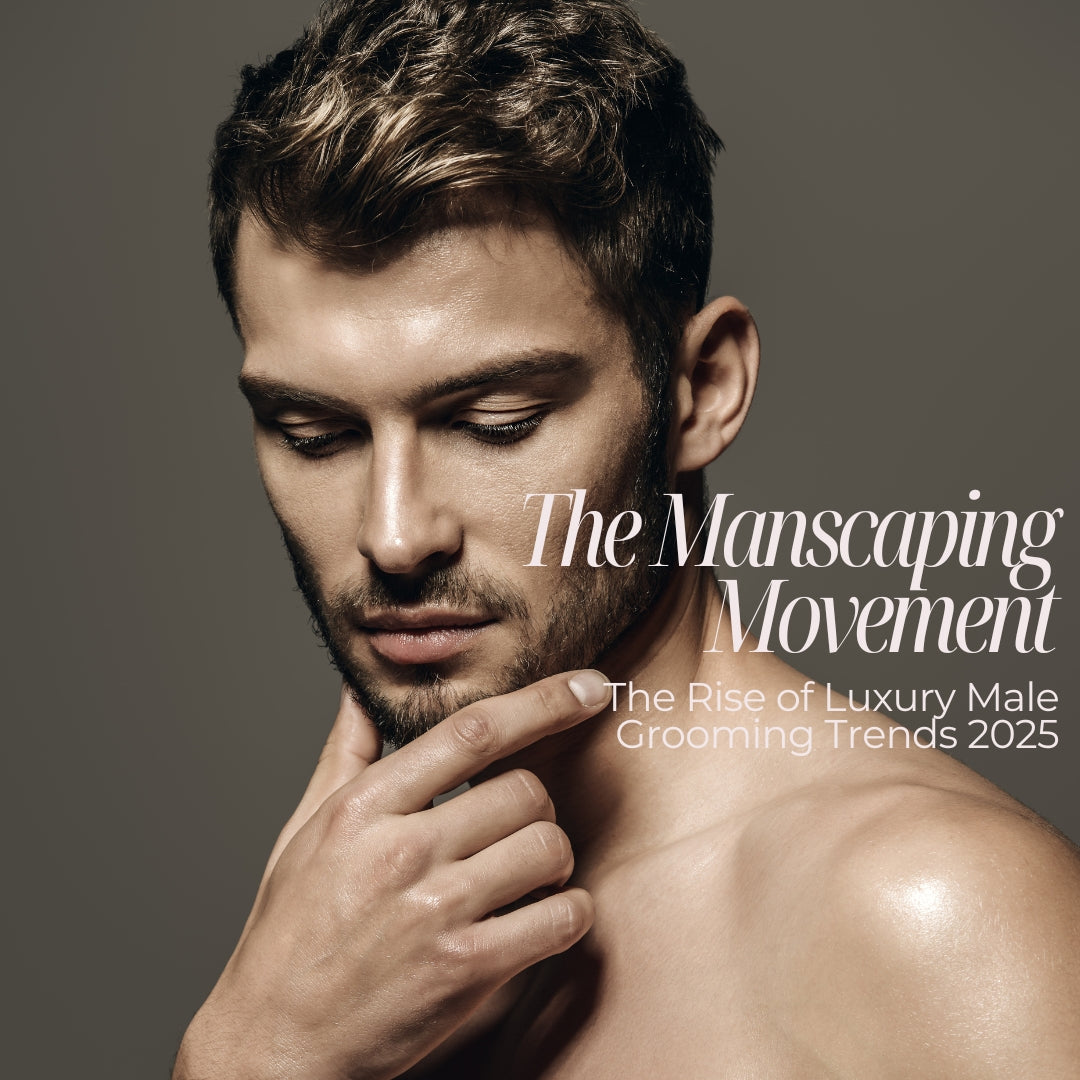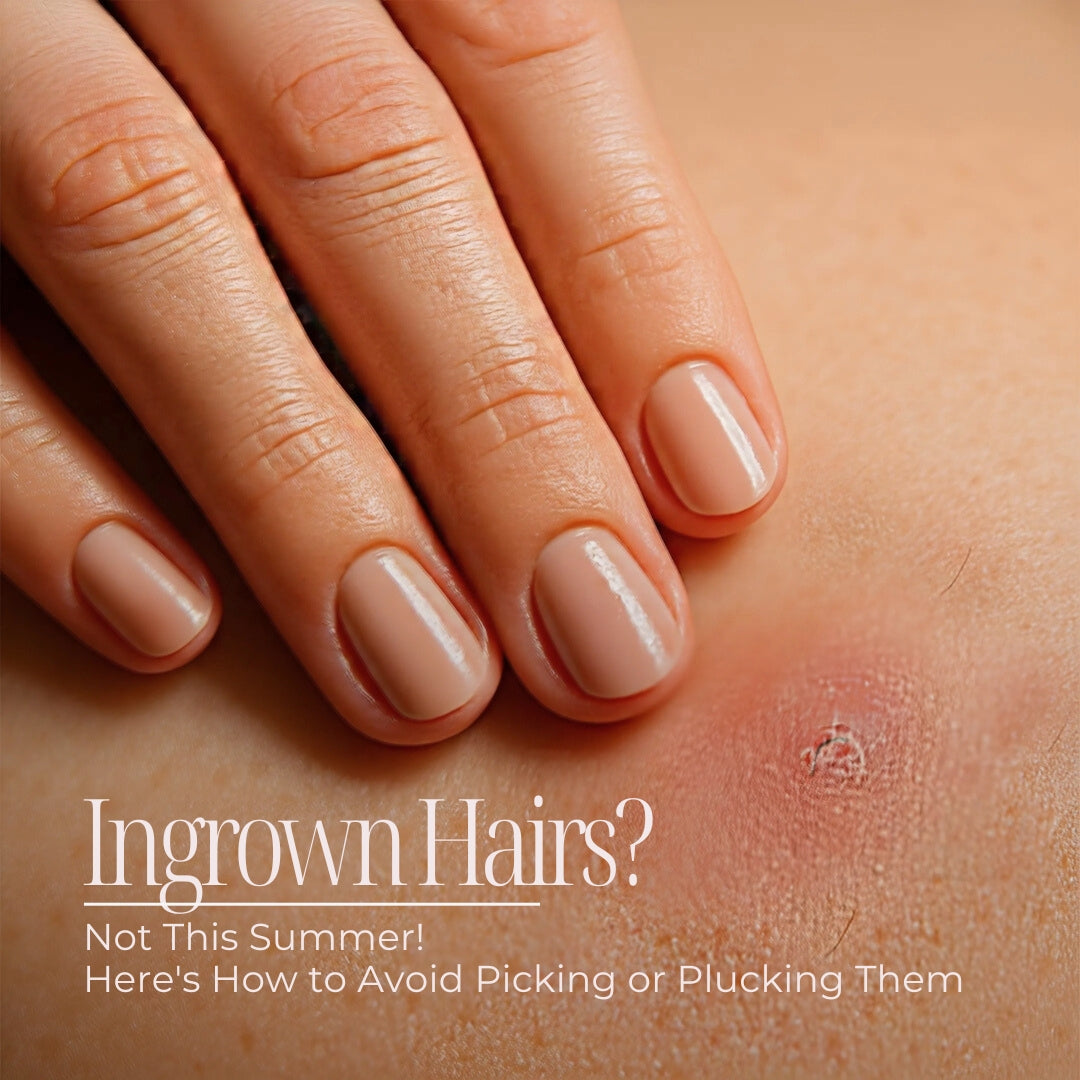SALON SPOTLIGHT: LGBTQIA+ Inclusive Waxing; Safe, Skilled, and Supportive, What Every Client Deserves

As Pride Month is drawing to a close with exciting celebrations, parades, and talks, we wanted to spotlight one of our salon partners who goes the extra mile to ensure that every client feels welcome, safe, and seen—right from the moment they consider visiting the salon.

It can be difficult for people within the LGBTQIA+ community, especially trans and non-binary people, to browse through numerous salon websites, pass by rows of high street beauty businesses, or scroll through social media without feeling unsure about whether a space is meant for them.
This uncertainty and lack of inclusion can create a barrier not only to self-care but also to professional care, something that is readily overlooked by most people who fit within a predefined checkbox.
That’s why we wanted to connect with Steph Lyon of Sabel Walker Skin and Wellness.
Sabel Walker is a salon with a holistic approach to wellness, and was lovingly named in honour of Steph's mother and grandmother. The salon has intentionally created a trans, non-binary, and LGBTQIA+ friendly environment, working diligently to ensure that every client feels respected and valued. We spoke to Steph about her salon and how she encourages this welcoming atmosphere.
How have you become involved with your local community?
I like to stay connected with local businesses to maintain a friendly, supportive network and try to cross-refer clients where possible. I live and work in the area, so it’s nice to promote the independent businesses I personally enjoy. I also donate to local fundraising events and provide raffle prizes to schools in the community.
Steph attributes much of her success to her local community, from her supportive client base and peers.

What does being part of this community mean to you, and how does it benefit those around you?
I’ve just celebrated two years in business, and as anyone who’s started out solo knows, the early years can be tough! I’m incredibly grateful. I love being able to give back in return.
Do clients ever share how they discovered your salon? Has your promotion of inclusivity influenced their decision to visit?
Most clients find me through online searches, social media, or word of mouth. I’ve had some lovely feedback from LGBTQIA+ clients who specifically chose to book with me because I promote inclusivity.
Especially after having negative or uncomfortable experiences elsewhere. I’ve also had great conversations with CIS/straight clients who share my values and said it played a big role in their decision to support my business.
Have clients expressed how the salon experience supports their identity or mental health?
Absolutely. Many clients say their visits feel more like therapy than a standard salon appointment!I’m a straight woman, so I can’t fully understand the LGBTQIA+ experience but I do understand what it’s like to struggle with mental health.
I don’t claim to have all the answers, but I hope that by making time for honest, open conversations, and listening without judgment, I help people feel supported.
This is something that can seem complicated to people who want to support others but feel they lack the right, the knowledge, or the lived experience to do so effectively. So having people who do can be inspiring enough to show others how.
How do you adapt treatments to meet the specific needs of trans and non-binary clients?
Inclusivity starts before a client even walks through the door. I’ve created a dedicated page on my website for trans and non-binary clients, with clear information about treatments and what to expect from the booking process.
My consultation forms include space for pronouns and a broader range of gender identities, not just the default “male/female/prefer not to say.” I’ve been careful with the language I use both online and in the clinic, and I always welcome feedback on how to improve.
I also completed additional training before launching my business to ensure I could confidently offer intimate waxing and other services to anyone who needs them.

How to apply this in your existing salon framework:
-
Update your client forms and booking process
Add inclusive language to your consultation forms—such as space for pronouns and a broader range of gender identities. It’s a small change that can have a big impact on how safe and seen clients feel. -
Make inclusivity visible online
Create a clearly labeled section on your website or social media for LGBTQIA+ clients, especially those who are trans or non-binary, with information about what to expect from treatments and your inclusive practices. -
Invest in relevant training and education
Optional training courses for more advanced skills such as intimate waxing or male intimate waxing, like those offered by LYCON.
Or training within your team on LGBTQ+ inclusion can help you and your team better understand and show up for a more diverse client base that feels safe for everyone.
What Trans and Non-Binary Clients Can Expect from Inclusive Waxing Services:
Salons that want to offer inclusive waxing services should clearly communicate what trans and non-binary clients can expect during their visit.
A waxing specialist may need to clarify the anatomy involved. This is not a matter of judgment, but a necessary step to ensure the correct techniques, products, and level of expertise are applied.
Understanding anatomical differences is purely for performing the treatment effectively and should not be seen as something to shy away from asking. It ensures the client receives the most appropriately trained therapist and a safe, comfortable experience.
For example, when working with male anatomy, it is common to encounter thicker, coarser hair. This can require more product and a longer treatment time.
Clients may also notice differences in pricing between salons. While some salons charge a flat rate for all intimate waxing services, others may adjust pricing based on time, product use, or specialist expertise. This decision is entirely up to each business and should reflect their own capabilities and structure.
To offer inclusive services responsibly, a salon should:
- Provide clear, respectful communication around treatments and expectations
- Ensure all staff are properly trained and confident in working with diverse bodies.
- Demonstrate a visible, ongoing commitment to creating a safe, inclusive environment
Salons that uphold these standards will not only deliver a higher quality service but also foster trust and loyalty from a broader client base.

know your local organisations and support agencies!
These organisations do incredible work supporting the LGBTQIA+ community in Hertfordshire:
@gayoutdoorclub
@hccsfyp
@tsgherts
Whether it’s mental health services, youth work, walking meet-ups, or safe spaces for social connection, these groups offer vital support. I share them because I want anyone looking for help or community to know where to turn.
This is a simple step that any salon owner or team can implement. By featuring well-researched and trusted local groups on your website, social media, or even in casual conversations with clients, you demonstrate that you care not only about the services you provide but also about the well-being of the individuals in front of you.
Even if you’re not directly involved with these organisations, signposting your clients to inclusive, supportive resources is a powerful way to put something good back into your community.
The final question is one we are certain some salon owners fear, and we couldn’t have a conversation on inclusivity without asking it.
Do you ever face pushback for being so open about your inclusive values?
Thankfully, I haven’t received direct pushback. I’ve had a few conversations with clients who were misinformed or had questions, but I always approach those situations with a genuine desire to educate and offer a different perspective.
So far, those discussions have led to greater understanding, not conflict. As an advocate for the community, I won’t tolerate hate in my clinic, any client with strongly opposing views would be asked not to return. Fortunately, that hasn’t happened, and I hope it never does.
We don’t all share the same experiences, but most of us know what it’s like to feel out of place, judged, overlooked, or misunderstood. That shared feeling is exactly why open conversations about inclusivity are so important in every space we move through.
Maybe even more so within the beauty industry, because these are the spaces we turn to in order to express who we are. Through beauty and fashion, we shape the image we present to the world, and that makes it even more essential that everyone feels welcome, safe, and considered.
Steph’s commitment to fostering a truly inclusive, safe space is a reminder of what’s possible. Her approach shows that with intention, compassion, and consistency, we can create environments where everyone feels seen, heard, and, as best we can, understood, not just during Pride Month, but all year round.




Leave a comment
This site is protected by hCaptcha and the hCaptcha Privacy Policy and Terms of Service apply.